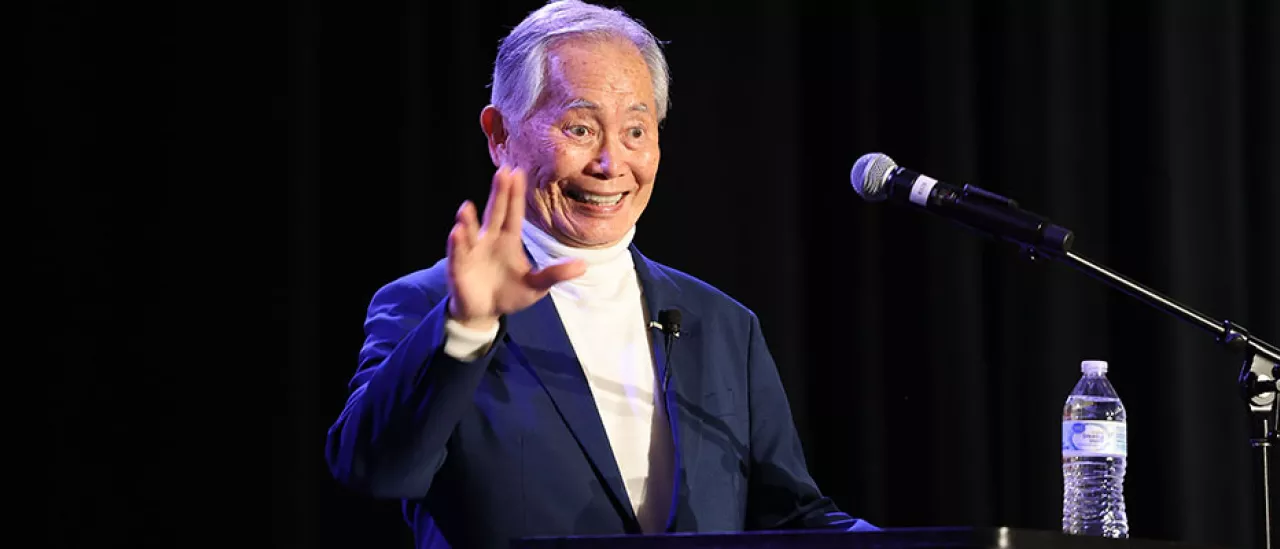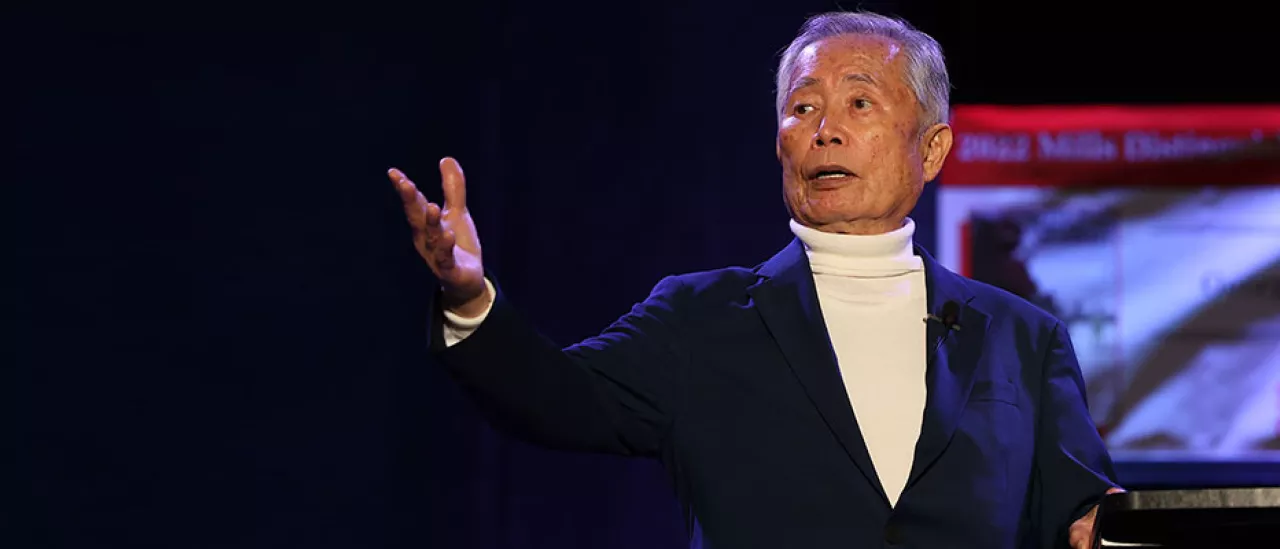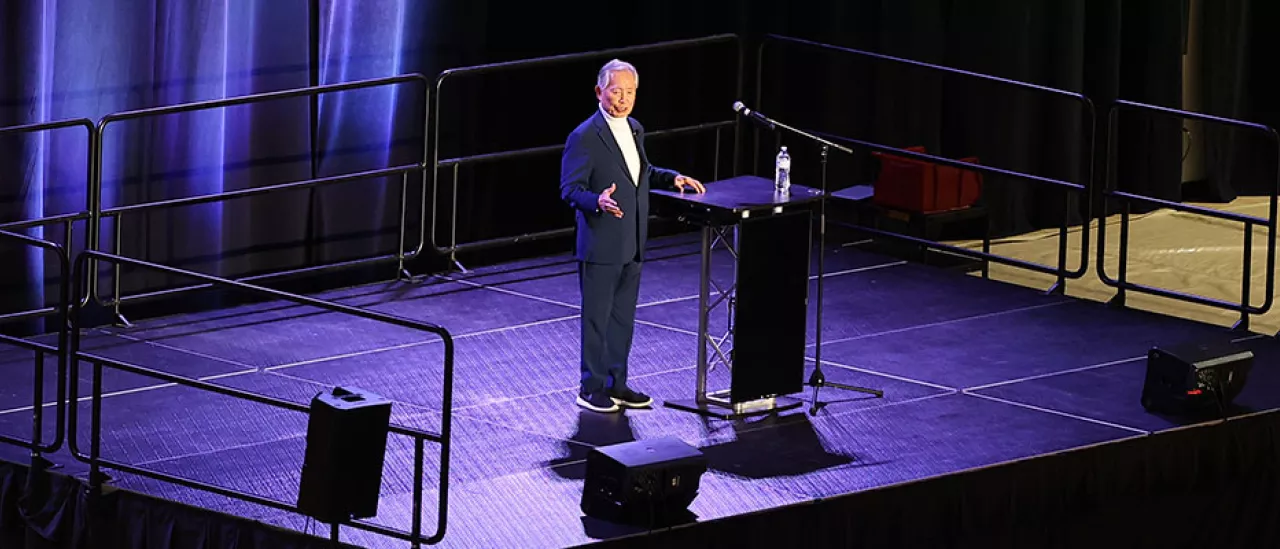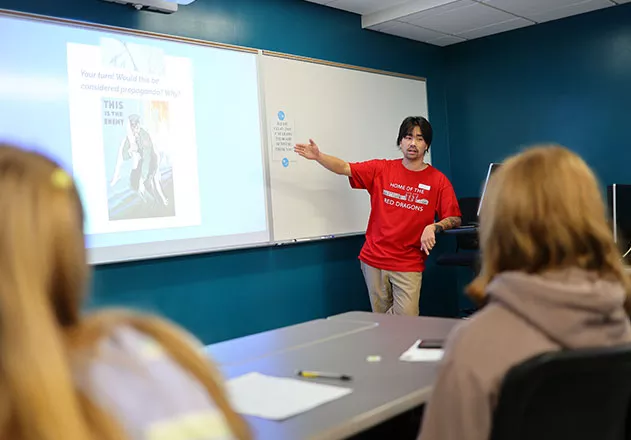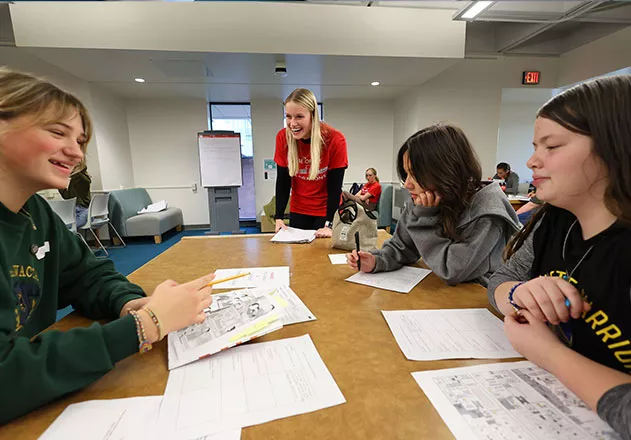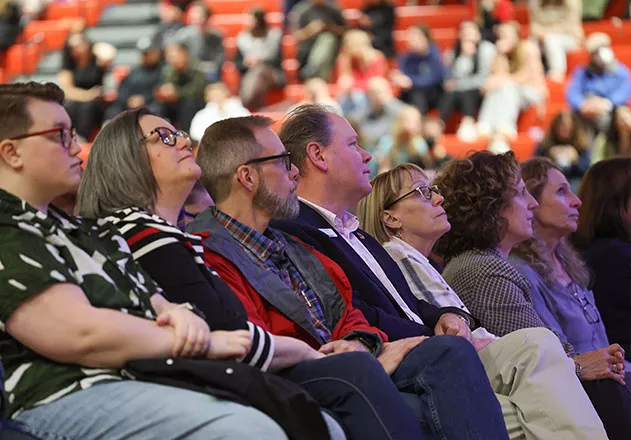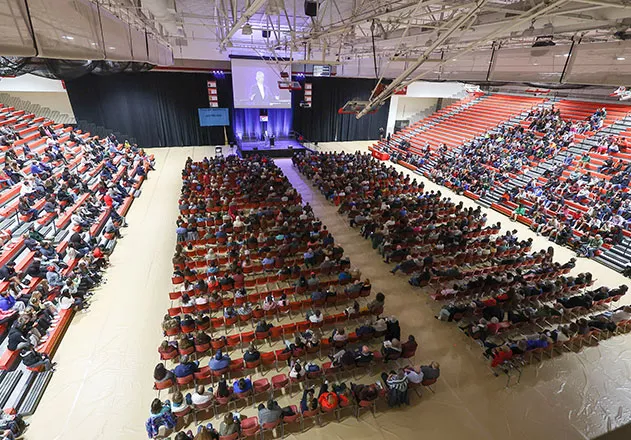Activist, actor and author George Takei visited SUNY Oneonta on Monday, Oct. 24, to deliver the Mills Distinguished Lecture and discuss the events of his New York Times best-selling graphic memoir, “They Called Us Enemy,” with students, faculty and other campus community members.
Walking on stage with the traditional Vulcan salute at the ready, George Takei thanked the SUNY Oneonta community for its warm welcome. He then began delivering the Mills Distinguished Lecture, recalling the overnight change when “America looked at us, Americans of Japanese ancestry, with suspicion” following President Franklin D. Roosevelt’s declaration of war on Japan during World War II. At 5 years old, George Takei became one of the approximately 120,000 Japanese Americans imprisoned across 10 internment camps after the bombing of Pearl Harbor in 1942.
Takei’s “They Called Us Enemy” is the college’s 2022 Common Read book selection. Now in its ninth year of advancing diversity by encouraging students to examine and better understand topics such as equity, inclusion and personal history through many lenses, the Common Read aims to further infuse cultural literacy into SUNY Oneonta’s academic program by asking the campus community to read a diversity-related book. Subsequently, the contents of the selected novel are part of fall courses across several disciplines.
“They Called Us Enemy” is a graphic memoir wherein Takei shares the joys and horrors of growing up under legalized racism, his mother’s hard choices, his father’s faith in democracy and how those experiences planted the seeds for his extraordinary future.
Takei is an author, activist and actor best known for his role on "Star Trek." He has captured hearts and minds worldwide with his captivating stage presence and outspoken commitment to equal rights.
“The issues that put us in those barbwire prison camps are a relevant story to our times today,” said Takei, “because we don’t learn the lessons of history. It’s cyclical, and it repeats itself over and over again.” Takei recalled the “same kind of mindless act by our government” happening in recent history with the “Muslim travel ban,” as well as the “denial of a core founding of our democracy, our elections.”
"They Called Us Enemy" received an American Book Award in 2020. Additionally, Takei has won several awards and honors for his work on human rights and the Japan-United States relations. He is a prominent proponent of LGBTQIA+ rights.
“I ask you to think about what I shared with you,” said Takei in his closing remarks. “Think hard, and profoundly, about our responsibility as Americans.” Takei’s final message was encouraging attendees to embrace voter responsibility to help combat bias in the United States, stating that the “next challenge is due on November the eighth.”
Partnership with Local High Schools
In conjunction with the lecture, Adolescence Education-English major Samantha Kaminski created an “Exploring Japanese Stories, Culture & History” display at the Milne Library and worked with Senior Assistant Librarian Sarah Rhodes, Professor Kjersti VanSlyke-Briggs, Assistant Professor Gina Solano and students Abigail Petrassi and Samantha Murray on a Humanities NY Vision grant-funded project to involve area high school students in this year’s Common Read. Approximately 200 students read Takei’s memoir in their high school English classes and then came to campus Monday afternoon for learning sessions examining many aspects of the book, led by SUNY Oneonta education students.
“Session A” split the themes explored in “They Called Us Enemy” into 10 discussions. These topics included empathy, loyalty, bias and other challenges that Japanese Americans faced during World War II, as well as the comparable obstacles that marginalized groups experience in the United States today. Some discussions also focused on the importance of using illustrations to fulfill meaning, specifically those seen in graphic novels like “They Called Us Enemy,” and why certain books have been banned across various states nationwide.
“Session B” was split into nine separate discussions that built upon the themes in “They Called Us Enemy” and how they have been used to influence storytelling during WWII through propaganda and literature in both the United States and Japan. Each discussion focused on a specific literary device and examples of how Takei used them throughout his graphic memoir. After the learning sessions, the students were treated to dinner in the Chase Gym before attending the lecture.
About the Mills Distinguished Lecture
Before giving the Mills Distinguished Lecture inside the Alumni Field House on Monday night, Takei met informally with faculty and students during three separate morning events, which made for a full day of engagement with the SUNY Oneonta community.
The Mills Distinguished Lectureship is named to honor the memory of Professor Albert Mills and his wife, Helena. Their bequest to the College at Oneonta Foundation led to the establishment in 1988 of a fund to bring prominent speakers to our campus.
